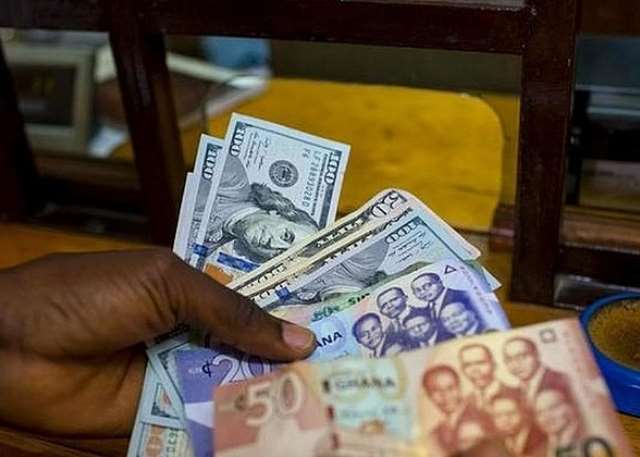The Ghanaian cedi experienced further depreciation against the US dollar on Thursday, January 23, 2025, continuing a trend of weakening performance. The buying rate, the price at which individuals can exchange dollars for cedis, stood at GHS15.06 per dollar, while the selling rate, the price at which cedis are exchanged for dollars, reached GHS15.53. This represents a decline of 5 pesewas and 4 pesewas respectively compared to the previous day’s averages, indicating a continued slide in the cedi’s value. This depreciation reflects the ongoing challenges facing the Ghanaian economy, including inflationary pressures and a widening current account deficit, which contribute to reduced demand for the cedi.
The disparity in exchange rates across different platforms highlights the fragmented nature of the foreign exchange market in Ghana. Forex bureaus, which cater primarily to individual customers, offered less favorable rates compared to the interbank market. At forex bureaus, the cedi traded at GHS15.75 when exchanging cedis for dollars and a significantly higher GHS16.20 when converting dollars to cedis. This difference underscores the higher margins charged by forex bureaus, impacting the cost of foreign exchange transactions for individuals and small businesses. The wider spread between buying and selling rates at these bureaus reflects their operational costs and the inherent risks associated with currency fluctuations.
The interbank market, where larger financial institutions conduct transactions, offered more competitive rates. The buying rate on the interbank market was GHS15.05 per dollar, while the selling rate was GHS15.07, indicating a much narrower spread compared to the forex bureaus. This tighter spread reflects the larger volumes traded on the interbank market and the lower transaction costs associated with these larger deals. The interbank rates serve as a benchmark for the overall foreign exchange market and influence the rates offered by other players.
The cedi also experienced depreciation against other major currencies, including the British Pound and the Euro. The average exchange rate for the British Pound stood at GHS18.39 when exchanging cedis for pounds and GHS19.09 when exchanging pounds for cedis. Similarly, the Euro traded at GHS15.48 for exchanging cedis for euros and GHS16.15 for exchanging euros for cedis. These rates further illustrate the cedi’s weakening position in the international currency market and the broader challenges facing the Ghanaian economy. The Bank of Ghana’s interbank selling rates for the Pound and Euro were GHS18.56 and GHS15.70 respectively, again demonstrating the more competitive rates within the interbank market compared to retail exchange services.
Money transfer platforms offered slightly varying rates for dollar transactions. LemFi provided a rate of GHS15.04 per dollar, while Afriex offered a slightly higher rate of GHS15.07 per dollar for transfers from the US or the UK to Ghana. For British Pound transfers, LemFi offered a rate of GHS18.50 per pound, while Afriex provided a rate of GHS19.49. Afriex’s Euro exchange rate stood at GHS15.70, whereas LemFi offered GHS15.60 per euro. The differences in rates offered by these platforms likely reflect varying operational costs, transaction fees, and competitive strategies within the remittance market.
For online subscription services like Netflix, Spotify, and Apple Music, payments processed through Visa and Mastercard incurred exchange rates of GHS16.32 and GHS16.26 per US dollar, respectively. These rates are notably higher than those offered by money transfer operators or even forex bureaus, underscoring the premium charged for international transactions using these payment processors. This highlights the importance of considering exchange rate variations when making international payments and exploring alternatives where possible to minimize costs. The higher rates associated with card payments likely stem from fees levied by the card networks and the banks involved in processing the transactions.














